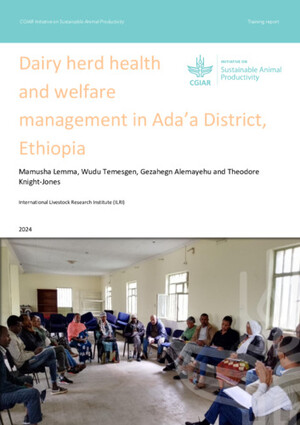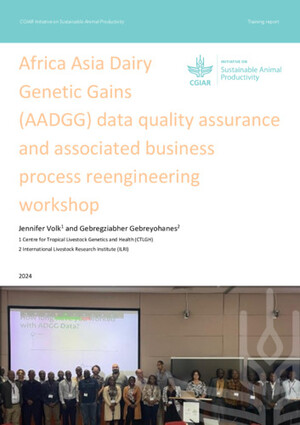
Estimating the effects of a change in dairy policy on infants’ milk intake in Kenya and Tanzania
Abstract
Objective
Over 70% of consumers in Kenya and Tanzania buy informally marketed unprocessed milk. This
milk is preferred as it’s cheaper and sold in volumes matching consumers’ purchasing power. Both
countries have formulated policies that restrict the sale of unprocessed milk, favoring the more
expensive pasteurized milk. We estimated the potential effects of such policies on household milk
allocation to children under 4yrs old.
Methods
We conducted a choice experiment among low-income randomly selected households (n=400) in
peri-urban areas in Kenya and Tanzania, that buy unprocessed milk. We asked participants to
indicate their best and worst choices among 9 milk allocation scenarios, in response to a
hypothetical 40% increase in milk price. The options ranged from adjusting budgets/milk quantities
to stopping purchase. We estimated relative importance of each option, grouped the households
using latent class analysis(LCA) and characterized each group by socioeconomic factors.
Results
Overall, the preferred option was decreasing the amount of milk purchased and substituting it with
cheaper food for children. The less preferred option was stopping milk purchase. LCA classified the
households into 3 groups. One group, including mostly households from the highest income tier,
preferred increasing their budgets to maintain milk consumption. The second group, with most
households in the middle-income tier, preferred decreasing amounts of milk purchased and
replacing the shortfall with another food for children. The last group, with most households in the
lowest income tier, would decrease purchase and replace with other products for the whole family.
Three of top 4 choices involved decreasing milk amounts purchased.
Conclusion
Policies that affect market price of milk could reduce intake of this nutritious product, particularly in
low-income households and by children. Consumer responsiveness to prices, preferences, and
allocations should be considered by governments when designing market restrictive policies.
Citation
Muunda, E., Mtimet, N., Wanyoike, F., Dominguez-Salas, P. and Alonso, S. 2022. Estimating the effects of a change in dairy policy on infants’ milk intake in Kenya and Tanzania. Oral presentation at the 16th International Symposium of Veterinary Epidemiology and Economics, Halifax, Canada, 9 August 2022. Nairobi, Kenya: ILRI.









